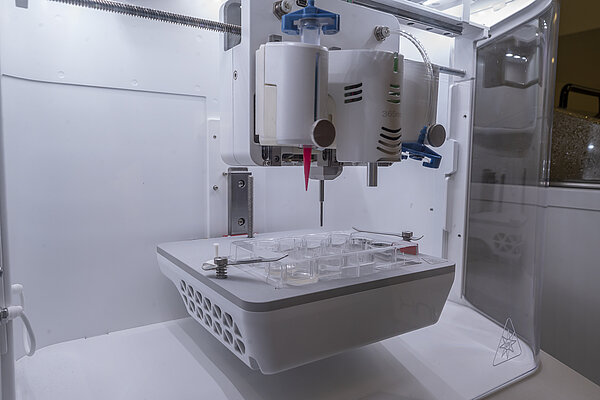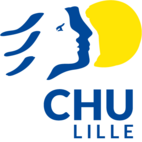
ORGANOMICS, a platform of the PRISM Inserm U1192 laboratory, offers expertise in spatial proteomics, mass spectrometry imaging, large scale proteomic analysis, bioprinting, and the generation of 3D cellular models, including organoids, for advanced biology and clinical research. Conveniently located within the campus of the “Cité Scientifique” at Lille University in Villeneuve d'Ascq, the facility welcomes academic, clinical, and industrial projects alike.
Bearing the esteemed IBiSA label since 2017, and with MS4OMICS integrated into the national ProFI-core infrastructure (French proteomic infrastructure), ORGANOMICS is dedicated to providing integrated proteomics platform services. With access to an impressive array of over 10 mass spectrometers including Rapiflex, Q-Exactive, TimsTOF, and Eclipse, researchers benefit from flexibility in analyte analysis and methodologies.
Complementing its analytical capabilities, ORGANOMICS features a robust cell culture section featuring two 3D printers, and a biobank of breast cancer organoids, cultivated in collaboration with clinical experts.
Furthermore, ORGANOMICS is structured into two specialized entities: MS4Omics and 3DCellOmics each catering to specific research modalities and requirements, ensuring comprehensive support for diverse scientific endeavors.
The platform is not open access.
Key words
Mass spectrometry imaging, spatial proteomics, MALDI imaging, MALDI-TOF, DESI, Orbitrap, Q-TOF, Shotgun, Bottom-up, Top-down, Cross-linking MS, proximity labeling (BioID/TurboID), bioprinting, spheroid, tumoroids, organoids, extracellular vesicles, large-scale analyses, CAR macrophages, MALDI-IHC
Staff
analysis
user of the plateform

MS4Omics, thanks to its state-of-the-art instruments and methods knowledge, offers services in mass spectrometry imaging, non-targeted proteomics approaches (bottom-up, shotgun and top-down proteomic) and interactomics (crosslinking-MS and BioID). Particular expertise has been developed in spatial proteomics and FFPE tissue analysis, proteogenomics, extracellular vesicle purification and analysis (including exosomes).



3DCellOmics is specializes in the creation of 3D models such as spheroids, organoids and bioprinting, in order to reproduce pathophysiological contexts as faithfully as possible. These models can be used to test new drugs, study intercellular communication and therapeutic resistance.
If you would like to use it, please contact our teams to discuss the project and set up access to the machines and techniques at organomics@univ-lille.fr




